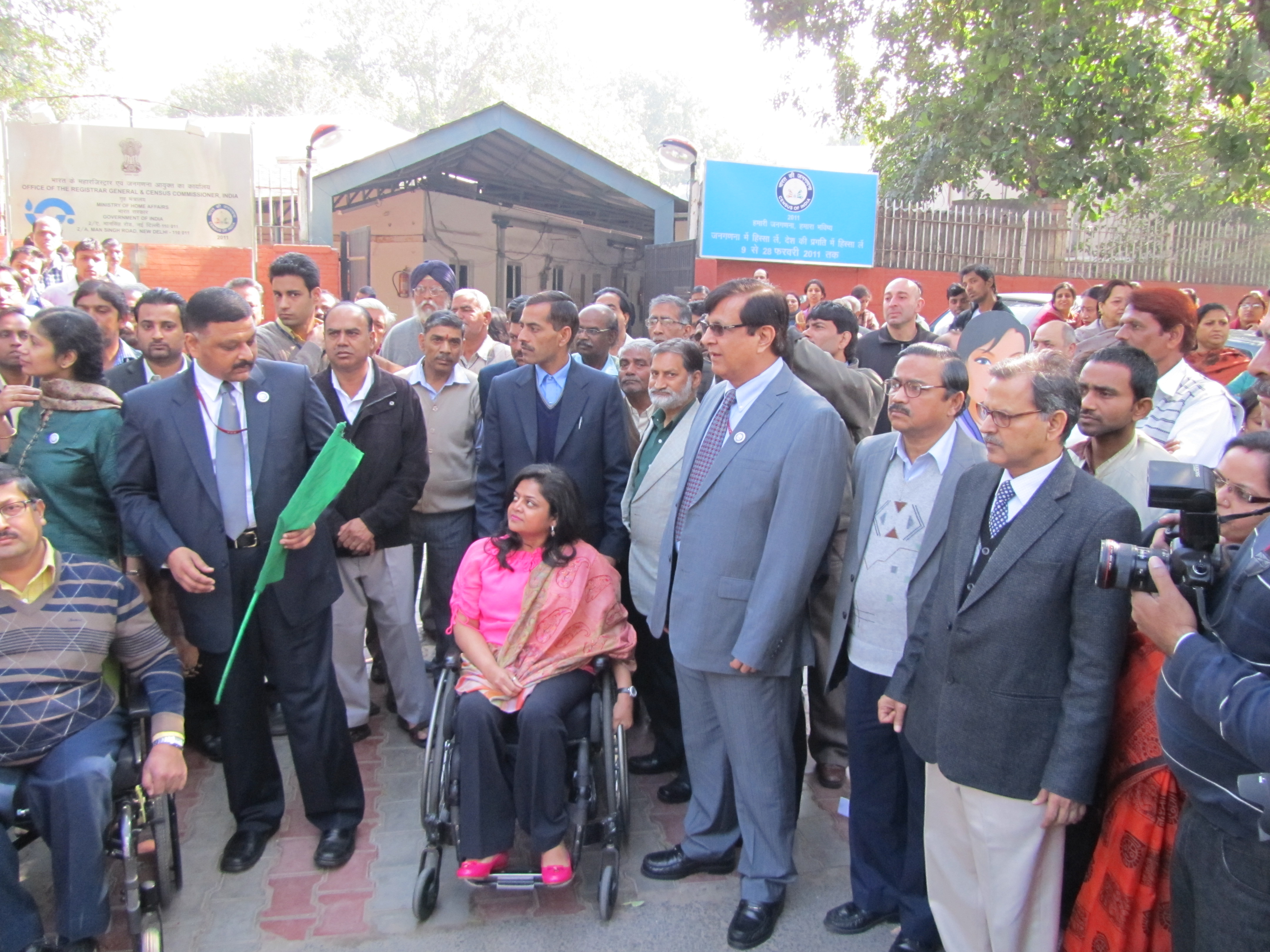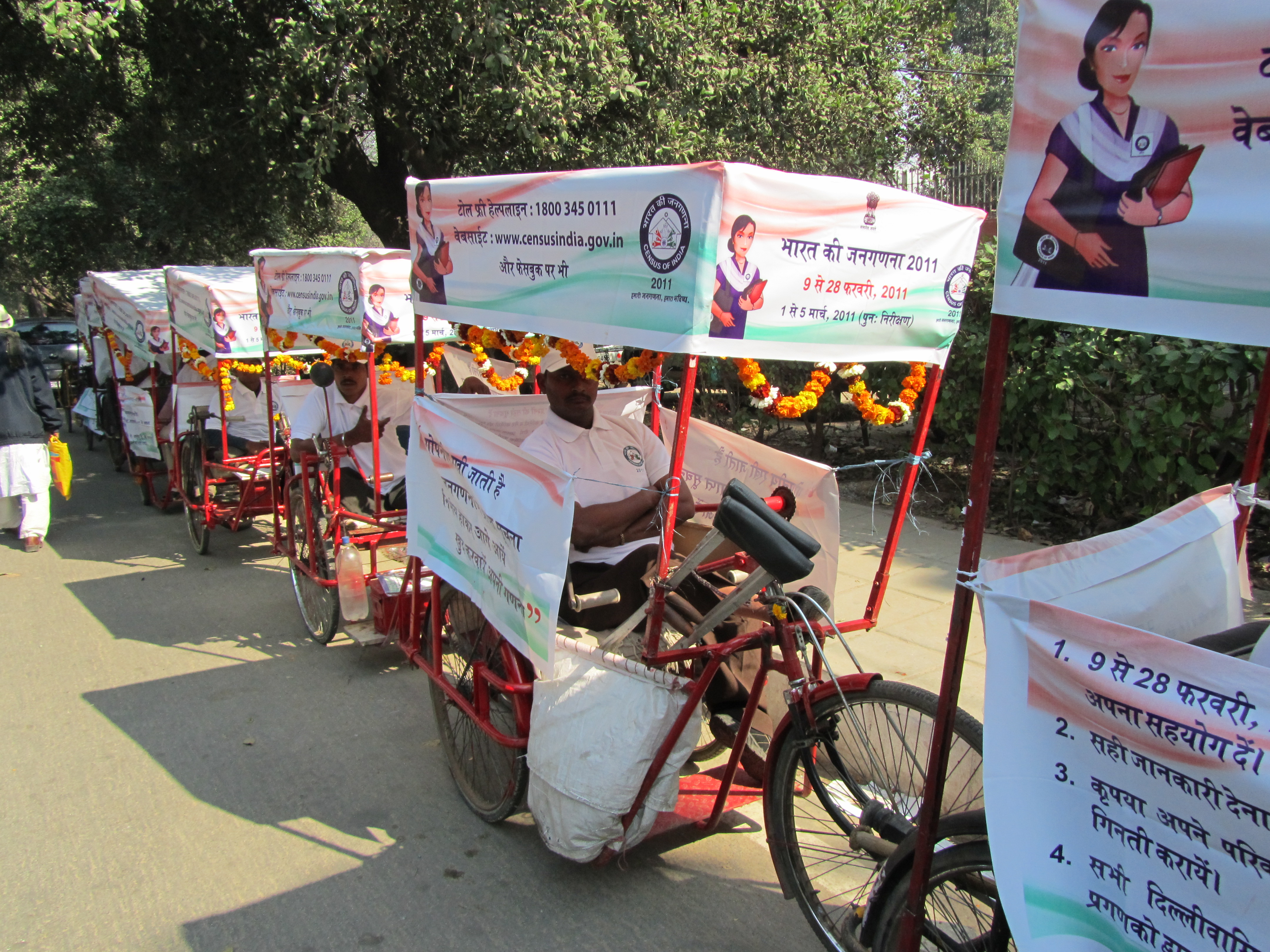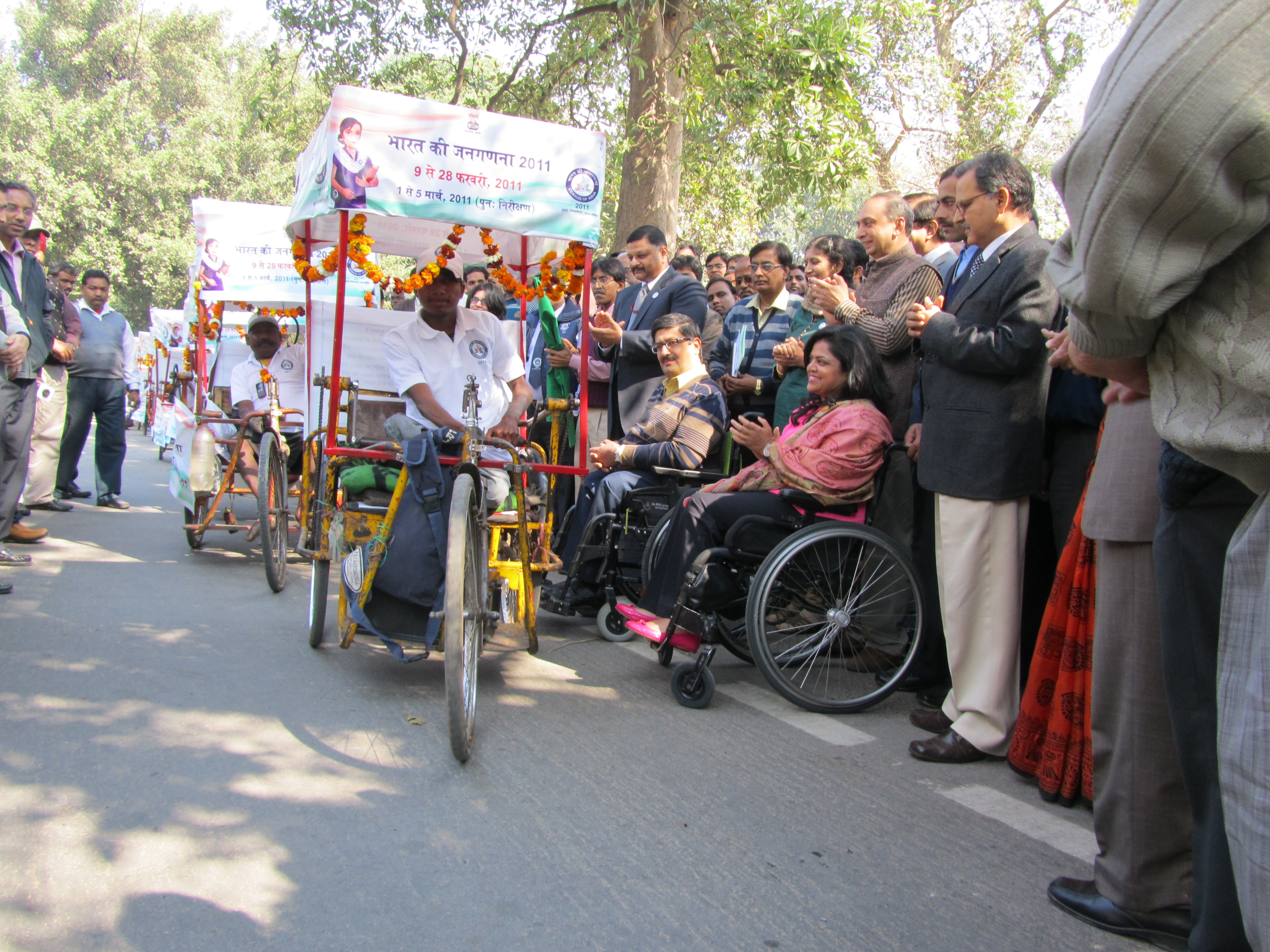New Delhi, February 10, 2011:
The head count for the Census 2011 has begun today. It is important to be counted especially if you are a person with disability or you have a member with disability in your family be it child or an elderly parent.
Majority of people with disabilities in our country are confined within the four walls of their homes. This is not because they are not capable of participating or contributing in the society but because there are no facilities for them. Most public facilities – transportation, water and sanitation, health services, educational institutions, workplaces, markets, religious places and theatres – are inaccessible or difficult to get and use, for persons with disabilities. One of the reasons for this is that there is no authentic data on number of people with disabilities in the country. They are not counted.
In the previous Census conducted during 2001 only 2.13% of the population was reported disabled. According to various other estimates, World Bank Studies and the United Nations, 5-10% of the population has disability. One of the reasons for this underestimation was that there was hesitancy on the part of census enumerators to ask the question on disability or a presumption that there were no persons with disability in the household and a reluctance of part of certain families to disclose that there was disabled child/member in their family.
“Census 2011 is at your door. Bring the missing millions to the forefront; don’t hide them behind closed walls. Yes, I am talking about children, adults and elderly with disabilities. Ensure you answer Question 9 when enumerators come to you! By hiding them you deny them that right of being a citizen and you deny the Government an opportunity to plan for their empowerment. This is the time to change! And you can change it by enumerating people with disabilities! STAND UP and BE COUNTED. Let them reap the benefits this great democracy called India has to offer to them. I strongly urge each one of you to ensure that no one gets left out in this head count. Inclusive Census can only ensure Inclusive India!” said Ms. Sminu Jindal, Founder-Svayam, Chair-ARUNIM, MD-Jindal SAW Ltd.
We all must be aware that 5-Year Plans, Yearly Plans, Policies, resources and facilities are calculated and planned on the basis of Census data. It is therefore extremely crucial that realistic data emerges from the Census.
If you are a person with disability or have a member with disability in family, you should not miss out on answering a question on disability. If you do, there may be no improvement in facilities for persons with disabilities and their families for the next ten years, till the next Census takes place in 2021!
Census of India 2011 has with great efforts of disability sector included Question No. 9 on disability and the disabilities covered are, disability of Seeing, Hearing, Speech, Movement, Mental Retardation (M.R.), Mental Illness, Multiple (More Than One) and Any Other. Ensure that you answer it for the simple reason – if you are counted- you are planned for and a budget is allocated for meeting your developmental needs. Even if there is no member with disability, they should ensure that the column is filled with a NO.
regards
Svayam Team
News Coverage in The Hindu:
NEW DELHI: “Stand up and be counted” is the clarion call for the disabled by various disability rights organisations to have themselves enumerated in the final round of the 2011 Census now under way across the country.
While the enumerators have, this time round, been intensely trained and sensitised on dealing with the issue of disability during the count, various non-government organisations have also chipped in by asking their members not to hide any details as they would help in planning for the future.
Svayam founder Sminu Jindal, herself a wheelchair user after an accident at the age of seven, said children, adults and the elderly with disabilities should ensure they answer question No. 9.
“By hiding them [the disabled] you deny them the right to be a citizen and deny the government an opportunity to plan for their empowerment. Let them reap the benefits this democracy has to offer. Ensure that no one gets left out in this head count. Only an inclusive Census can ensure an inclusive India,” she said.
Ms. Jindal lamented that a majority of the people with disabilities remain confined within the four walls of their home not because they are not capable of participating or contributing to the society, but due to lack of facilities.
Most public facilities — transportation, water and sanitation, health services, educational institutions, workplaces, markets, religious places and theatres — are inaccessible or difficult to get around for persons with disabilities.
Stating the reasons for this as lack of authentic data on the number of people with disabilities in the country and their not being counted, she said now that the Census is taking them into consideration it is time to stand up and be counted.
To read more please visit website of The Hindu at http://www.hindu.com/2011/02/11/stories/2011021166160700.htm




